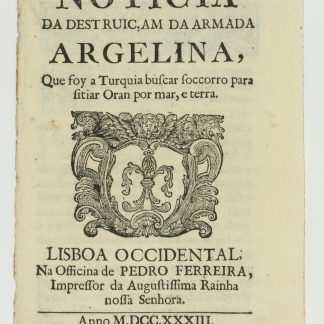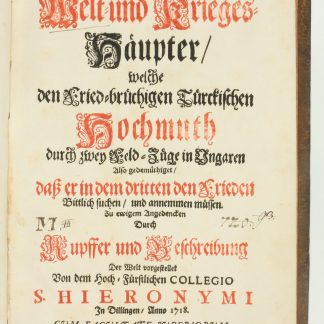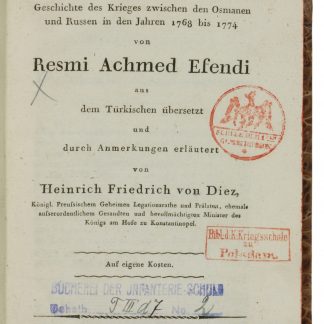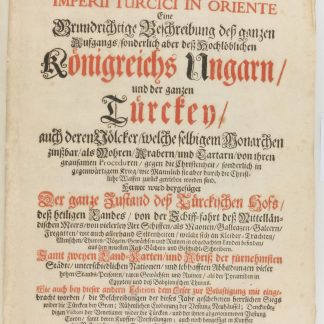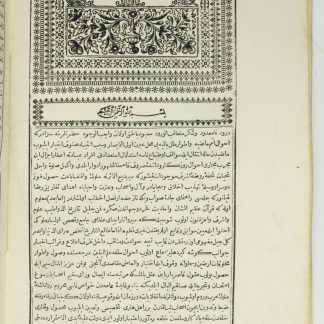History of Ottoman diplomacy in the 18th century, printed at Bulaq
Mahasin ül-âsâr ve hakayik ül-ahbar.
4to. 2 vols. bound in one. 14 pp. (index), 210 pp., (1 blank), 7 pp. (index), 190 pp. Original full calf with later paper label; later marbled paper on the spine.
€ 5,800.00
An important first-hand account of relations between the Porte and central Europe as well as the wider political events during the second half of the 18th century. Written by the Baghdad-born diplomat Ahmed Vasif Effendi and also known as "Vasif Tarihi" ("Vasif's History"), it forms one of the most important works of Ottoman political history for the period between 1754 and 1774, when the author actively participated in the world of diplomacy in the Ottoman Empire, on the Balkans, in Russia and in Vienna. Vasif was known for his quick temper and was later described by the German orientalist Franz Babinger as "vain, stingy, jealous, and excessively vicious" (cf. p. 336). His text was left unfinished after a dispute with the Istanbul-based press of Rasid Efendi, which Vasif himself had helped establish, and it was completed by Sadullah Enveri (d. 1794), who himself had participated in the military events described.
At the time one of the few available printed historico-political accounts of contemporary Middle Eastern relations with the West during the age of Enlightenment, the book proved extremely popular throughout Europe and is today found in many European libraries. This is the third and last edition, the second printed at Bulaq, by the first official and governmental printing press in Egypt, after first being published in Istanbul in 1219 (1803/04).
Bulaqor Al-Amiriya Press, the first official and governmental printing press established in Egypt, was founded in 1820 by the viceroy of Egypt, Muhammad Ali. As early as in 1815 the first delegation was sent from Egypt to Milan to learn printing. After the building for the press was finished in the autumn of 1820, it took another two years to transport the machines and train the employees, and the first book, an Arabic-Italian dictionary, was published in 1822. Viceroy Muhammad Ali started several reform programmes with a view to create a modern Egyptian society after the European model, and the press was part of this modernisation. He is remembered for establishing modern Egypt as an independent country.
Printed on thick paper. Interior clean with sporadic old staining; old pencil and ink annotations to endpapers. Binding shows larger scratches and loss of material, but still in the original Bulaq covers. Provenance: 19th century bookseller's label of Benjamin Duprat, Paris, on front pastedown; later owned by the Iraqi architect Mohamed Makiya (2015).
Özege V, 22519. OCLC 949617481, 777193206, 320228577, 780208235, 165361809, 26779362 and 600848792 (some examples on microfilm). Ethan L. Menchinger, The First of the Modern Ottomans: The Intellectual History of Ahmed Vasif (2017). Franz Babinger, Die Geschichtsschreiber der Osmanen und ihre Werke (1927), pp. 335-337.



